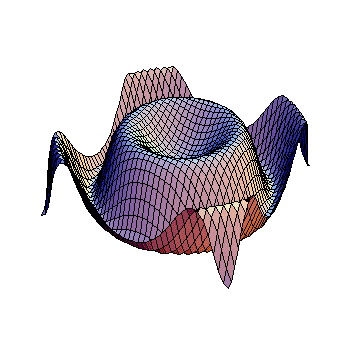In another way, we know that
#tan(theta) = sin(theta)/cos(theta)#
And that #cos(theta) = sqrt(1 - sin^2(theta))#
So we can say that
#tan(theta) = sin(theta)/sqrt(1-sin^2(theta))#
For #theta = arcsin(x)# we have
#tan(arcsin(x)) = x/sqrt(1-x^2)#
Which is simply a rational function and won't touch on messy trig derivates, and is easy to derive using the appropriate tricks. Using only the chain rule we have
#y = x/sqrt(1 - x^2)#
#dy/dx = 1/sqrt(1-x^2)d/dxx+xd/dx(1/sqrt(1-x^2))#
#dy/dx = 1/sqrt(1-x^2)+xd/dx(1/sqrt(1-x^2))#
Say #1 - x^2 = u#
#dy/dx = 1/sqrt(1-x^2)+xd/(du)(1/sqrt(u))(du)/dx#
#dy/dx = 1/sqrt(1-x^2)+x(-1/(2u^(3/2)))(-2x)#
#dy/dx = 1/sqrt(1-x^2) + (x^2)/((1-x^2)sqrt(1-x^2)#
From there it's just algebra (also, as a sidenote, that #(1-x^2)# would be in absolute value bars but since it's always positive for the range of #x# we can take, we don't bother with it.
#dy/dx = ((1-x^2)+x^2)/((1-x^2)sqrt(1-x^2)) = 1/((1-x^2)sqrt(1-x^2))#
Or, if you prefer
#dy/dx = (1-x^2)^(-3/2)#

